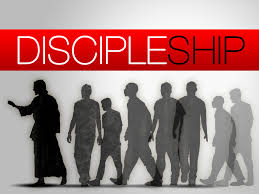I just got done attending service at my home church, Community Christian Church in Naperville, IL (Community). My family and I have been “on mission” with Community for more than 20 years now. It has been a great journey so far and I am excited about where the journey is heading in the future. 
In the latest service, the message was the third in a series on “directions”. This theme for this message was “outward” – putting the needs of of others before the needs of your own. The primary Biblical text was from John 13 – Jesus washing the disciples feet.
As is usually the case, I found myself significantly challenged spiritually and practically. We were admonished to make serving others a priority in our lives – in our families, with our friends, in our workplaces, our church, and in our communities both locally and globally.
We had just recently finished up our annual “Celebration Generosity” where we as a church gave away an entire week’s offering to four outreach organizations that are changing the world through serving others. Over the last several years, we at Community have given away millions of dollars to these four teams.
This last Sunday (Oct 26, 2014), the 13 campuses of Community sponsored more than 400 children in the programs of Compassion International. During the weekend services, we got to hear live personal stories from two graduates of the program. A lady named Kiwi from the Philippines shared her story at the main service Sunday morning; and, a young man named Jey from Kenya shared his story at the evening Student Community service. The stories were incredibly inspiring. It is amazing how such a seemingly small effort on our part can make such a huge difference in the life of a suffering child with no hope.
Sitting in the auditorium that morning, I realized that I was surrounded by some long-time followers of Jesus, those who are still figuring out who Jesus is, and everyone in between. I was struck by the multi-faceted impact that was happening in that one-hour service. So many different people were being impacted in so many different ways – all of which will all lead to so many different and significant outcomes to bring God’s love up close and personal to those around us.
All of this got me thinking about the internal and external criticism sometimes levied against Christian churches. While I cannot speak for most churches, I can definitely speak about my 20 years of experience at Community. From my participation and observation of the last 20 plus years, I have come to these conclusion about my Christian church – Community:
- The weekend “seeker friendly” services
- Challenge me spiritually and practically week in and week out
- Bring in hundreds if not thousands of people every year from the community who are genuinely seeking to understand God better
- The local instantiation of this particular local church institution:
- Envisions, equips and mobilizes community transformation at local, regional and international levels
- Actively engages and challenges it’s people to grow and develop in their spiritual faith and community-impacting servant-leadership.
- Substantially impacts the youth – toddlers, elementary, jr high and high school students from the church body and the surrounding local communities.
- Provides a brick and mortar “third place” structure to support many individual, group and community development meetings, gatherings and projects.
- Provides a conduit for channeling resources of time, expertise and money to local, regional and community non-profits, NGOs, and outreach-focused organizations.
- The formal church staff
- Models vulnerability, transparency and accountability on an ongoing basis.
The idea of church that is “seeker friendly” is still very relevant. As it turns out, there are still many people outside the church who identify “church” as a place to seek after God. My local church, provides highly visible and engaging physical spaces as well as attractive and safe environments to get to know God in a more personal way.
This is the secret sauce of the “seeker friendly” church. As people live life and wish to experience God to a greater extent, the cultural programming inside of them recognizes “church” as a legitimate vehicle to get them there. Community Christian steps up to the plate and creates an incredibly effective, welcoming environment for people to take those first few steps back to God.
The job of the church (small c) – the institution, the building, the staff – is to attract, engage, envision, equip and mobilize “The Church” (big C) – which is everyone who is following Jesus.
The job of “The Church” (big C) is to “be on mission” helping people find their way back to God and discipling everyone. That is big C Church’s job to actually do and carry out – not “little c” church’s.
One does not have to look too hard to find “little c” churches that have significant issues with the senior staff, the messaging, the services, etc. There is no doubt about that.
However, there are many “little c” churches that totally rock! That are doing the right things, for the right reasons. That are advancing the sacrificial love of God in their local and global communities.
Community is one of those “little c” churches that is rocking their mission; that is getting it done consistently well – and getting better at it.
In “little c” churches that rock, that are getting their mission done, the onus for exponential world change falls on the “big C” Church – you and me – the followers of Jesus. The so-called “lay people.” The “big C” Church is often the limiting factor in “little c” churches that rock. Here are some examples:
Every week Community puts dozens of people who are actively seeking a relationship with God in close proximity with the people of the “big C” Church. The pastor’s job is not to form discipling relationships with every one of the new people seeking God that show up on a weekly basis. That’s our job as the “big C” Church. And yet, many “big C” Church folk (Churchers) would rather hang out with their close friends whom they are comfortable with than talk to “strangers.” Many of us “big C” Churchers would rather get home to watch the Bears game. As a small example, I personally know where the side doors are so I can get out of church fast and limit the amount of interaction I have do with people. How lame is that!?
Every week Community provides numerous opportunities to develop spiritually with other followers of Jesus. Many of us “big C” Churchers would rather make small talk, see a movie or some other entertainment based activity so we can avoid difficult and challenging personal conversations. It’s too taxing emotionally and mentally to be intentionally about growing spiritually most of the time.
Every week Community provides opportunity to serve other people in our local and global communities as we “reach out”. Many of us “big C” Churchers have way too many other priorities – especially for the relationally/time intensive opportunities for outreach. Instead of going deep, let’s pack some food for an hour, or hand out some Christmas gifts for an a couple hours and broom-out without having to get into any uncomfortable relational discussions. Let me be clear: the problem here isn’t packing food or distributing Christmas gifts…the problem here is the lack of the same level of participation in the more relationally difficult and personally “costly” outreach efforts.
The “little c” church exists to attract, engage, envision, equip and mobilize – people. The people who attend the “little c” church have the ultimate onus for the world-changing impact of spreading the sacrificial love of Jesus in our communities. If “we” as the community within Community Christian Church do not do what we are supposed to do, the “mission” suffers. Not for lack of mobilization and equipping, but for lack of effort, desire, discipline and heart – in the “big C” Church.
My church rocks! I believe it’s one of the best in the world at attracting, engaging, equipping and mobilizing. The ultimate impact of the mobilization is simply the product of the impact of each and every one of the “big C” Churchers being mobilized. If 30% of us suck, then you’re going to get 30% less impact. Period.
Our individual character as members of the “big C” Church, can also be referred to as our “missional character.” Our individual and collective “missional character” as the “big C” Church is the lynchpin for impact when we are part of an already rocking “little c” church like Community Christian.
You will never hear me say things like, “I’m not being fed” Instead you will likely hear me say, “The food is great. I need to stop eating and start exercising more!”
Let’s be intentional and effective and relentless in developing our individual “missional character”!!








